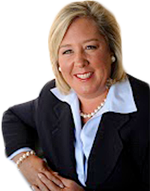Op-Ed: Equality Amendment
Stunned, devastated, fearful, and outraged were just some of the reactions shared with me on that Friday in June when the final decision came down from our highest court to overturn Roe v. Wade. New Yorkers flooded the streets around Foley Square and Washington Square Park. So many local Upper East Side and Roosevelt Island residents gathered at our Saturday rally in Carl Schurz Park, attended by the many generations of pro-choice women in our orbit. The stories shared at our intergenerational rally were personal and powerful.
One woman in her eighties reflected on her experience seeking abortion care and being fortunate enough to afford the cost but describing the risk and social stigma that surrounded her decision in a pre-Roe era. We also heard from those who described their ancestors who did not survive the procedure because it was outlawed and done in secrecy.
The outcry spans people of all generations and backgrounds. It is clear that the rescinding of precedence of a half a century-old federal right- a woman's right to control of her body is a "Supreme Setback” we must fight against. New York State was home to the women’s movement and met in Albany in the mid 1800's fighting for equal rights, both before and after the historic Seneca falls first woman's rights convention. The strong legacy by and for women lives on in our state.
Governor Kathy Hochul has pledged that we will be a safe haven for women to obtain the health care they need. She is providing funding for necessary support programs. There are important initiatives underway to fund travel and related costs for women trapped in other states adopting primitive laws aimed at controlling their bodies.
In 2019, the State Legislature codified Roe v. Wade into statute, known as the Reproductive Health Act, which I proudly co-sponsored in advance of the "Supreme Setback.” At the time, critics said we didn’t need to act because of the legacy protections of Roe. So long as Democrats maintain the majority in both the State Senate and Assembly, the law shields women from oppressive abortion regulations. But any law can be changed or even subverted if the political winds shift and impact on the voting booth.
It is ever more pressing to not rest on precedent, and do more to proactively defend our rights and reproductive autonomy. When the Supreme Court was blessed with the presence of Associate Justice Ruth Bader Ginsburg, she forthrightly stated, "The state controlling a woman would mean denying her full autonomy and full equality.”
Sarah Weddington, winning attorney in Roe v. Wade was my mentor and I had the great honor of speaking at her funeral in Austin, Texas earlier this year. In the fortieth anniversary edition of Sarah’s book, "A Question of Choice,” Sarah made clear that the only way to avoid the horrors of illegal abortion, is to keep it legal. She specifically cited the importance of state constitutions as the vehicle.
I have been the lead sponsor of an Equal Rights Amendment for five years in the Assembly. As a part of the comprehensive response to the overturning of Roe, an extraordinary session was held and the legislation reached first passage, sponsored by my colleague Senator Liz Krueger. It requires a second consecutive approval in the 2023 or 2024 legislative session and is brought to the voters as a referendum in the 2024 statewide election.
The Equal Rights Amendment goes much further than ensuring reproductive autonomy. The right to abortion will be enshrined into our New York State Constitution and expand protected classes to further guard against more "Supreme Setbacks,” prohibiting discrimination based on race, color, ethnicity, national origin, age, disability, creed, religion, or sex, including sexual orientation, gender identity or expression, pregnancy, pregnancy outcomes, reproductive healthcare and autonomy.
Now that we have passed the first hurdle of a constitutional amendment with the help of Governor Kathy Hochul, Assembly Speaker Carl Heastie, Senate Majority Leader Andrea Stewart Cousins, unyielding legislator colleagues, and numerous dedicated advocacy groups.
The prospect of preserving our rights statewide and nationally needs to be fueled by a new generation of organizers and activists. Igniting the embers of the women’s movement of decades past will not be easy but in New York we have proven that we can meet the challenge.
